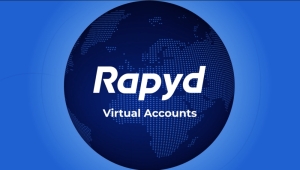


(Posted on 13/04/23)
Up to 20% of salaries in shipping today, equal to more than $10bn annually, are paid in cash. It’s an insecure, expensive way to do business, with employers charged as much as 5%-12% of the underlying value to get cash on board. And it’s just as expensive to manage the complexity of their payroll, with excessive time and costs spent paying salaries across the globe, dealing in cash, and tax reconciliation, plus processing hefty fees and administration costs.
As for the Seafarers themselves, they end up paying commissions and bank charges with poor, unpredictable exchange rates, with no certainty of when and how they can change money or how much it will cost them.
Kadmos - a platform that specialises in powering secure payments to seafarers across the globe -recognised the need to develop a secure salary payments platform that would make paying crew members more efficient and drastically reduce administration and transfer costs. To do this, it needed a payments partner that could navigate the world’s complex and fractured financial infrastructure and operate seamlessly across multiple jurisdictions, integrating multiple payment providers and systems, while also meeting local tax, licensing and regulatory standards.
Rapyd, a global fintech company, enables international payments by combining various payment methods including bank transfers, local debit cards, digital wallets, and even cash into one user-friendly platform. Using Rapyd, businesses can efficiently handle payments across different countries, meeting each market's unique needs and requirements and making significant time and cost savings in the process.
Kadmos is using Rapyd’s technology and payments network to underpin its new salary payments platform. It allows Kadmos to pay seafarers via a secure, functional, and cost-effective mobile app, giving them access to their money, regardless of whether they’re at sea or in port, through a digital wallet, which can be used to pay bills, send money home and make online purchases. They can also use a Visa debit card to make purchases at ports and withdraw cash.
Seafarers can track payments and spending on the app, keep the salary in their wallet in stable currencies such as US dollars, euros or British pounds, and save money on transfers and exchange rates. The whole system is protected by European e-money regulations.
Paying seafarers may be a uniquely tough problem to crack, but it is clear that there are other parts of the logistics supply chain which could also benefit from adopting a new approach to payments. There are 180 million migrant workers worldwide travelling and working across the globe, and cross-border employees working in industries such as construction, healthcare, and hospitality face all similar challenges when it comes to salary payments.
David Rosa, General Manager of Wallets, Disburse and FX at Rapyd said: “By providing a secure, user-friendly platform that transcends borders, Rapyd and Kadmos are making a real impact on the lives of seafarers and their families around the world, reducing their financial burdens, and streamlining the entire salary payment process for employers, their workers and their families”.
A new breed of payments technology is emerging to provide a much better service to seafarers and many other industries, with the ability to get paid quicker and more efficiently. For Kadmos, powered by Rapyd, it is a groundbreaking solution that has reshaped the organisation’s approach to cross-border payments.
Torvald Klaveness has announced the decision to consolidate all digital services under Klaveness Digital... Read more
The International Association of Dry Cargo Shipowners (INTERCARGO) has renewed its call for straightforward... Read more
The Swedish Club has delivered strong results for 2024, posting a USD 34 million profit and significantly... Read more
In line with NORDEN’s positive long-term outlook for Capesize freight rates, the company have... Read more
OrbitMI, a global provider of maritime software and data products, has expanded its workflow capabilities... Read more
Current ClassNK Senior Vice President Hayato Suga has been appointed as President & CEO as well... Read more
The surge in demand for Cape Size bulk carriers will continue for another six weeks, driven on by increased... Read more
OrbitMI, a leading provider of maritime SaaS software, has announced that Istanbul-based Statu Shipping... Read more
“The International Association of Dry Cargo Shipowners (INTERCARGO) is deeply saddened by the... Read more
As the shipping industry continues its transition to carbon-neutral fuels, ammonia and hydrogen are... Read more